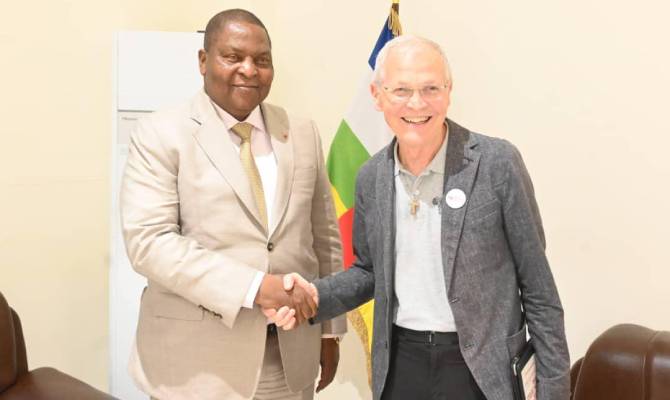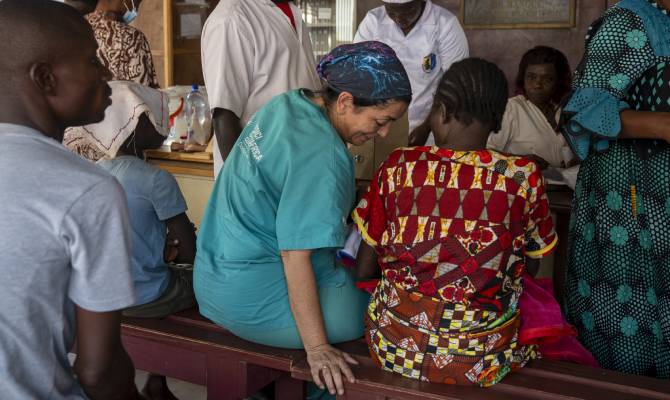Gender-based violence (GBV) has reached alarming levels in the Central African Republic (CAR). Despite the existence of national policies and legal frameworks, entrenched sociocultural norms continue to disadvantage women and girls, with devastating effects on their well-being and personal development.
According to the Gender-Based Violence Information Management System (GBVIMS), 2,445 GBV cases were reported by dedicated service providers in the first quarter of 2025. Among the survivors, 96 per cent were women and girls (OCHA, June 2025).
Recognizing the urgency of the issue and the importance of ensuring safety and care for women and girls seeking health services, CUAMM recently organized a three-day training for healthcare workers in Bangui under the UNFPA project. The course brought together 13 health professionals from the Castors maternity ward and two from Bangui Paediatric Hospital (CHUPB).

The training covered a comprehensive range of topics, including the epidemiology of GBV, types of violence, risk factors, and consequences. Participants explored the principles of care for survivors, first-line communication techniques, and identification of intimate partner violence (IPV).
Further sessions focused on the links between GBV, sexual and reproductive health, and HIV/AIDS, as well as case management processes and mapping the availability of GBV services. Mental health care for survivors and practical exercises, including video analysis, were also part of the agenda.
“I was aware of GBV as an issue; I had heard about it, but until now I had never received formal training on the subject. This was a real opportunity for me because the tools shared by the facilitators will help me better recognize and support GBV survivors. In my view, it’s a very important issue that requires us to mobilize in order to help the population overcome these challenges. I look forward to strengthening my knowledge further in future training sessions.”
— Sioven Inés, newly appointed psychologist at CHUPB
Pre- and post-training assessments showed significant improvements in participants’ knowledge and readiness to respond to GBV cases. The training concluded with a closing ceremony attended by health authorities and CUAMM representatives, reinforcing the commitment to strengthen care for survivors of gender-based violence in Bangui.
While internally displaced persons and refugees are often seen as the most visible faces of the crisis in CAR, GBV has escalated to alarming levels. Women and girls are the most frequently affected, facing risks of violence during everyday activities such as collecting wood and water, going to markets, or simply being in community spaces. According to the United Nations Office for the Coordination of Humanitarian Affairs (OCHA), every hour in CAR more than one person is subjected to GBV, particularly rape.
Today, a drastic drop in funding for GBV prevention and response programs threatens progress, forcing the closure of many essential support services, including healthcare and mental health and psychosocial support (MHPSS). In this challenging context, CUAMM remains committed to addressing GBV in the Central African Republic, as well as in many other countries where the situation remains critical.





